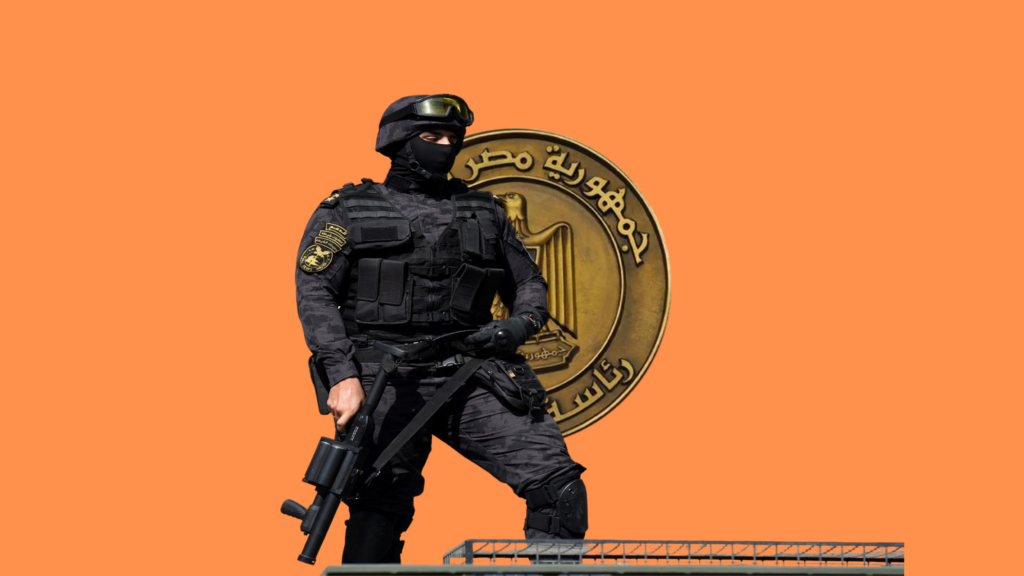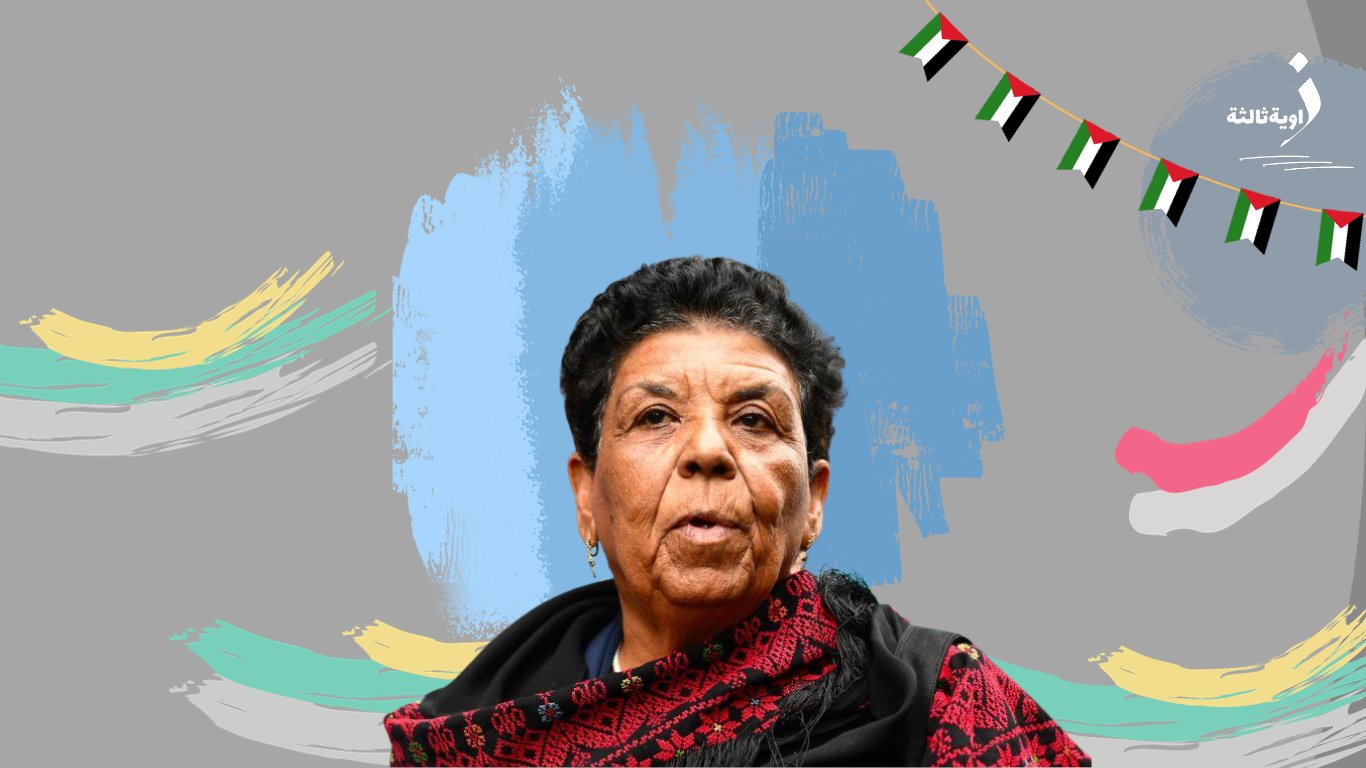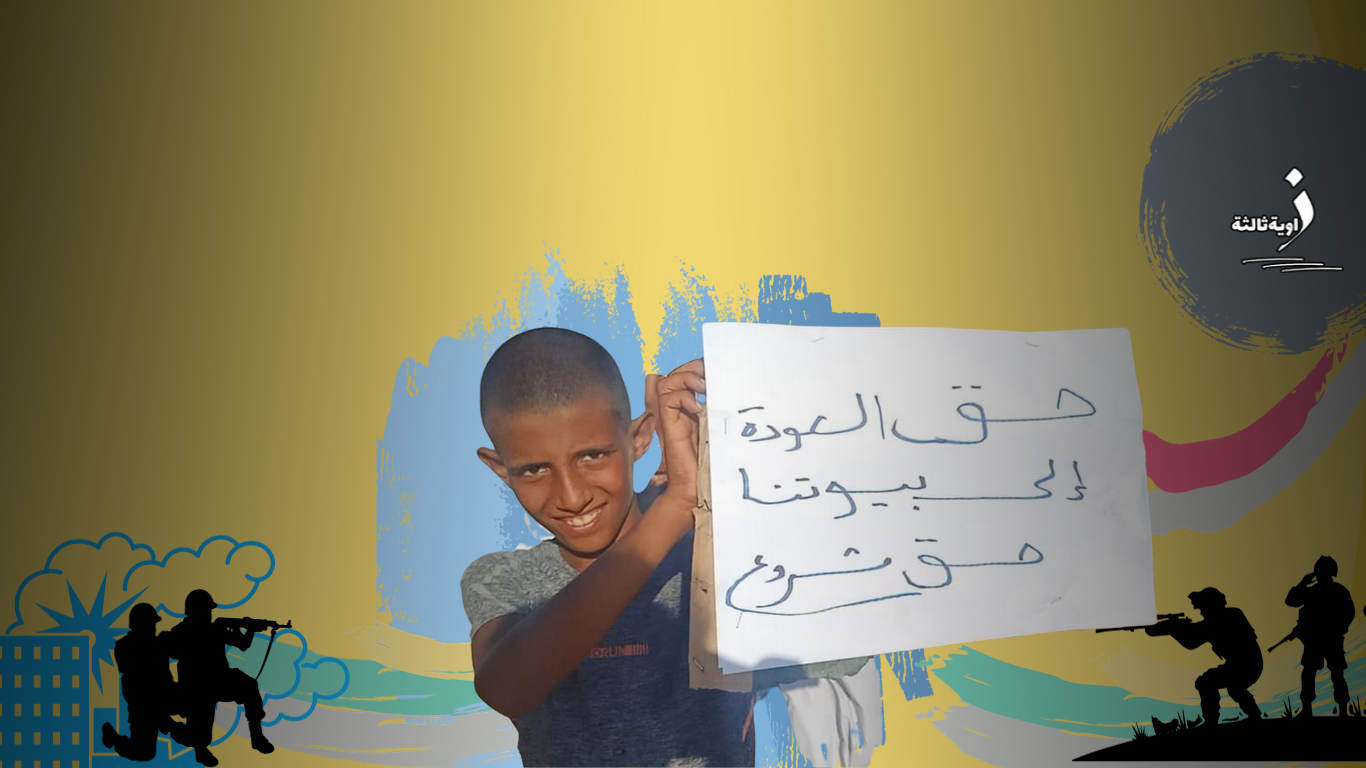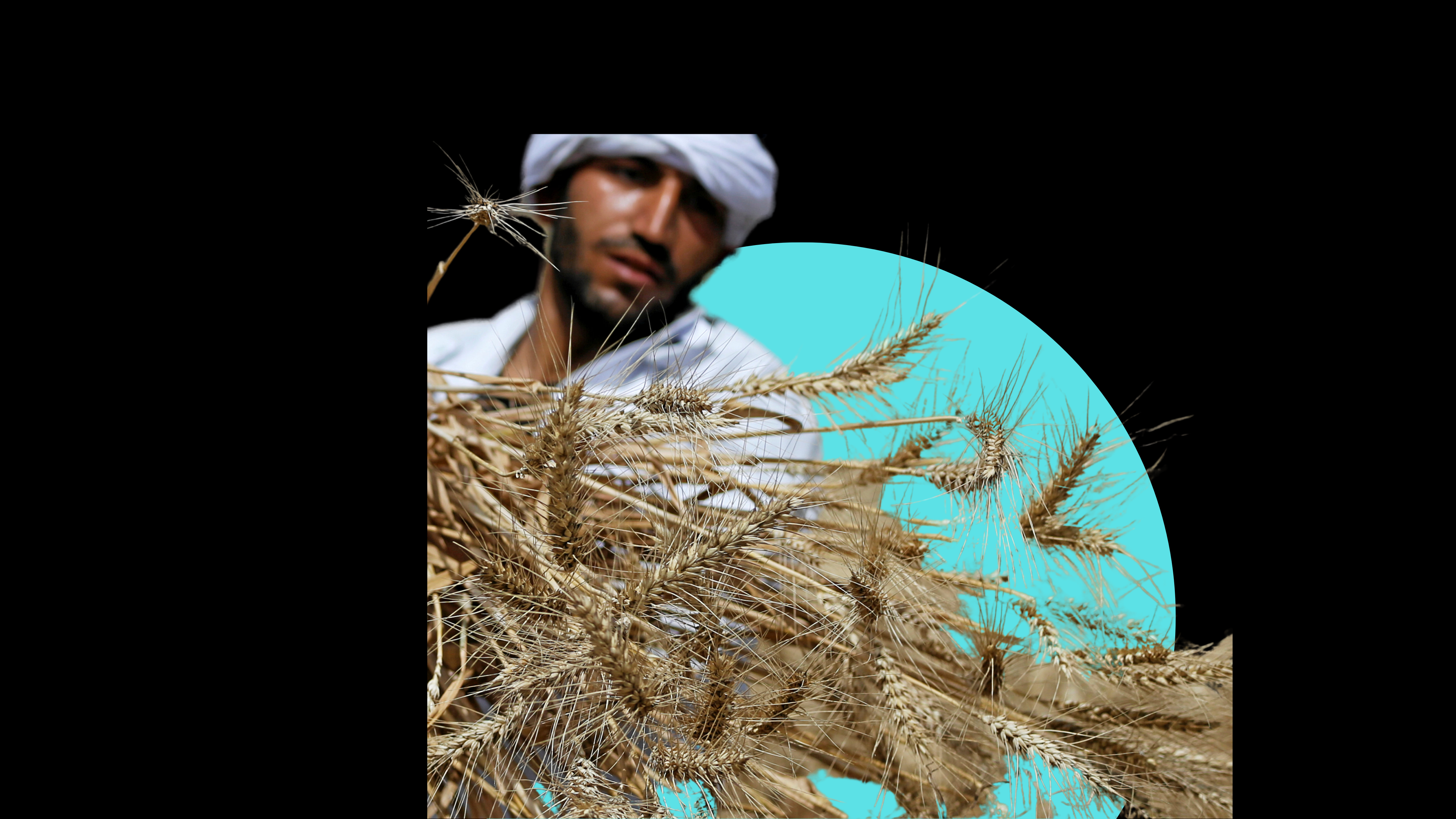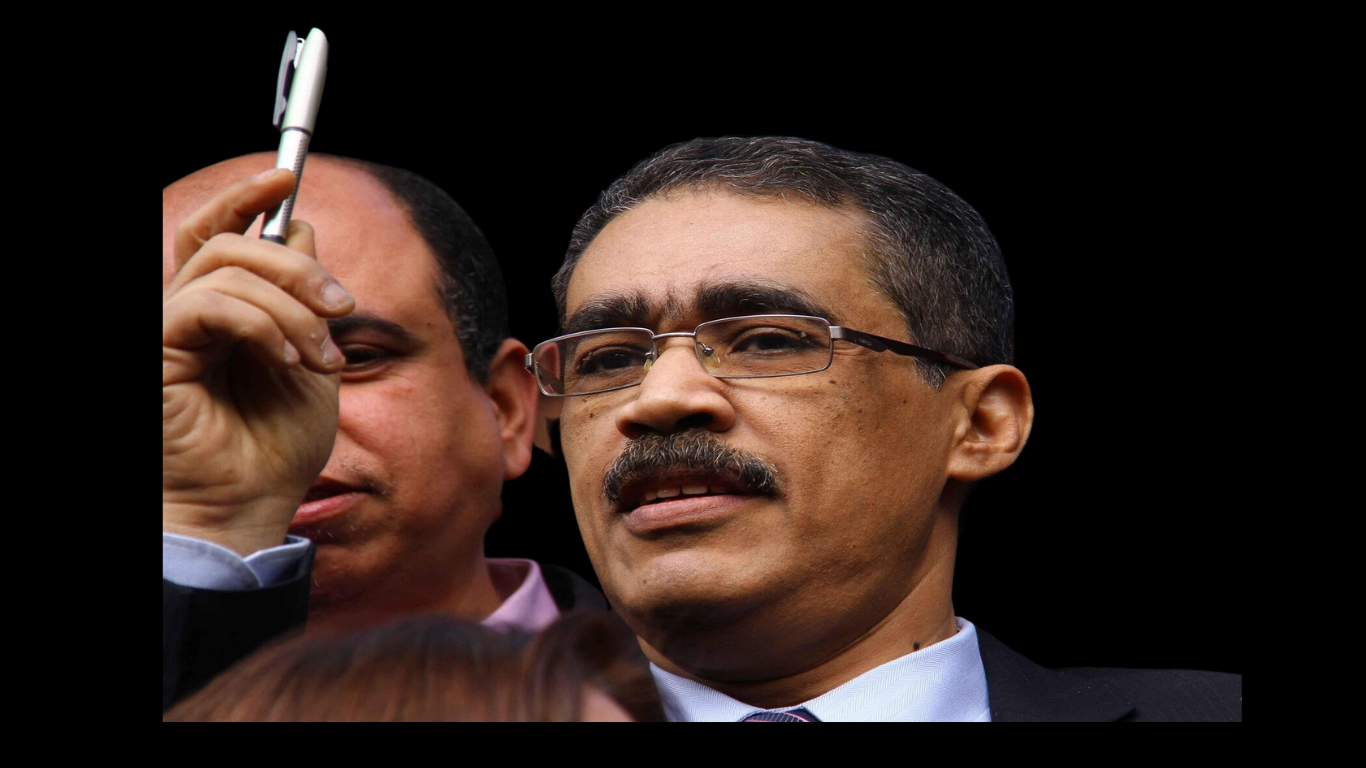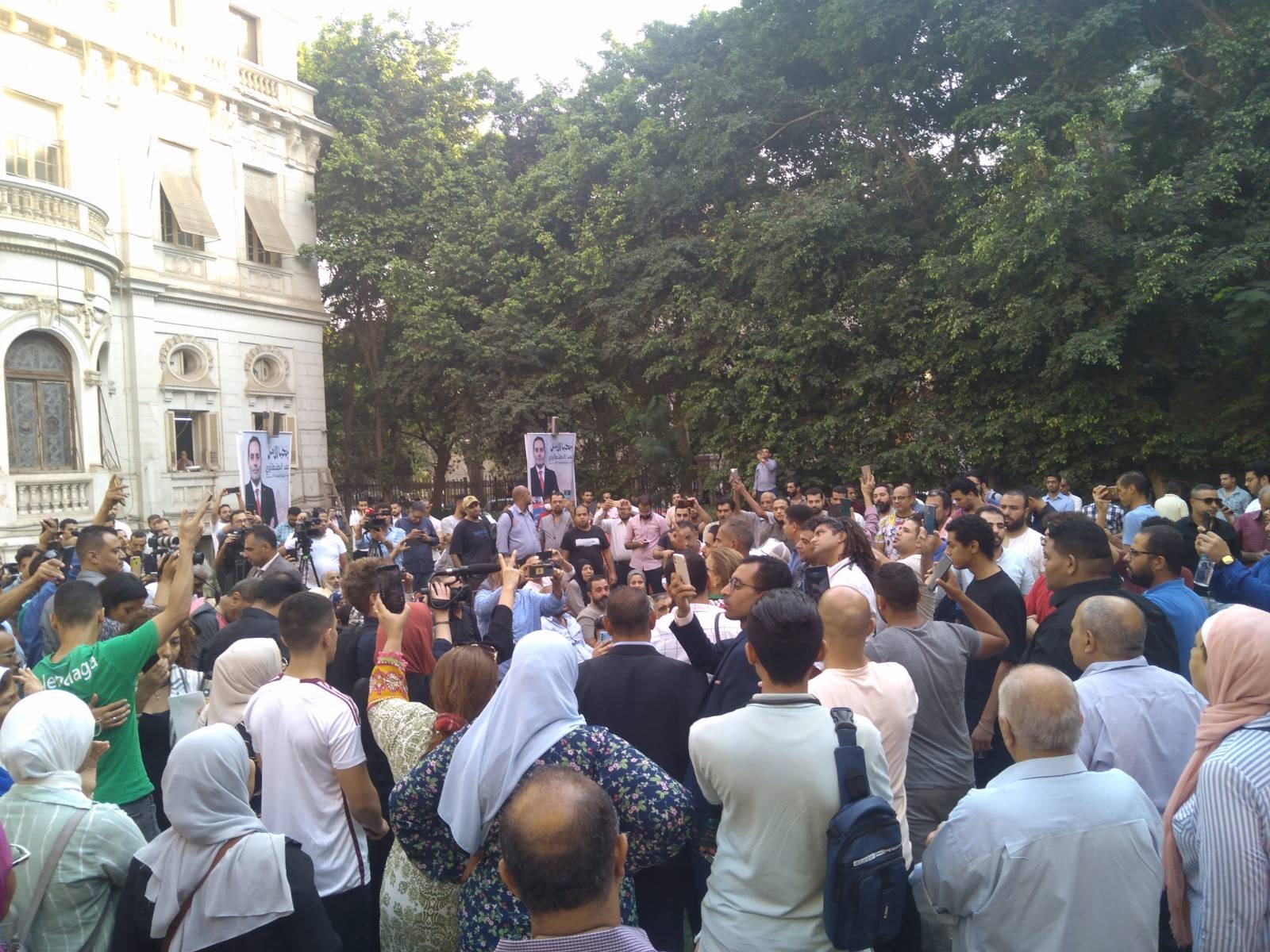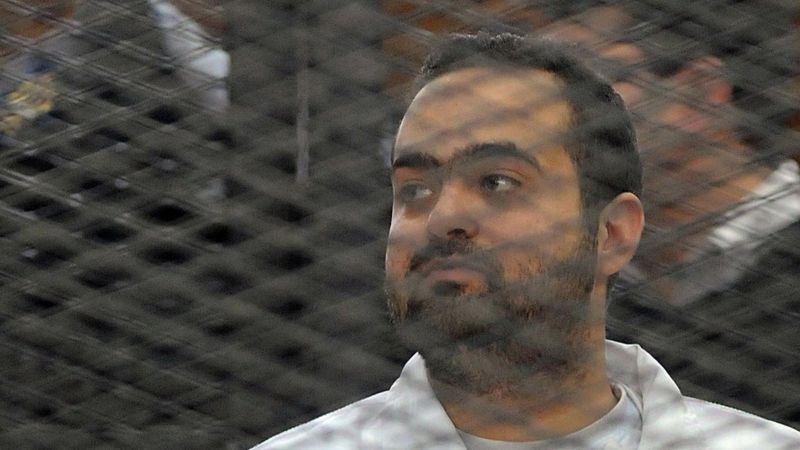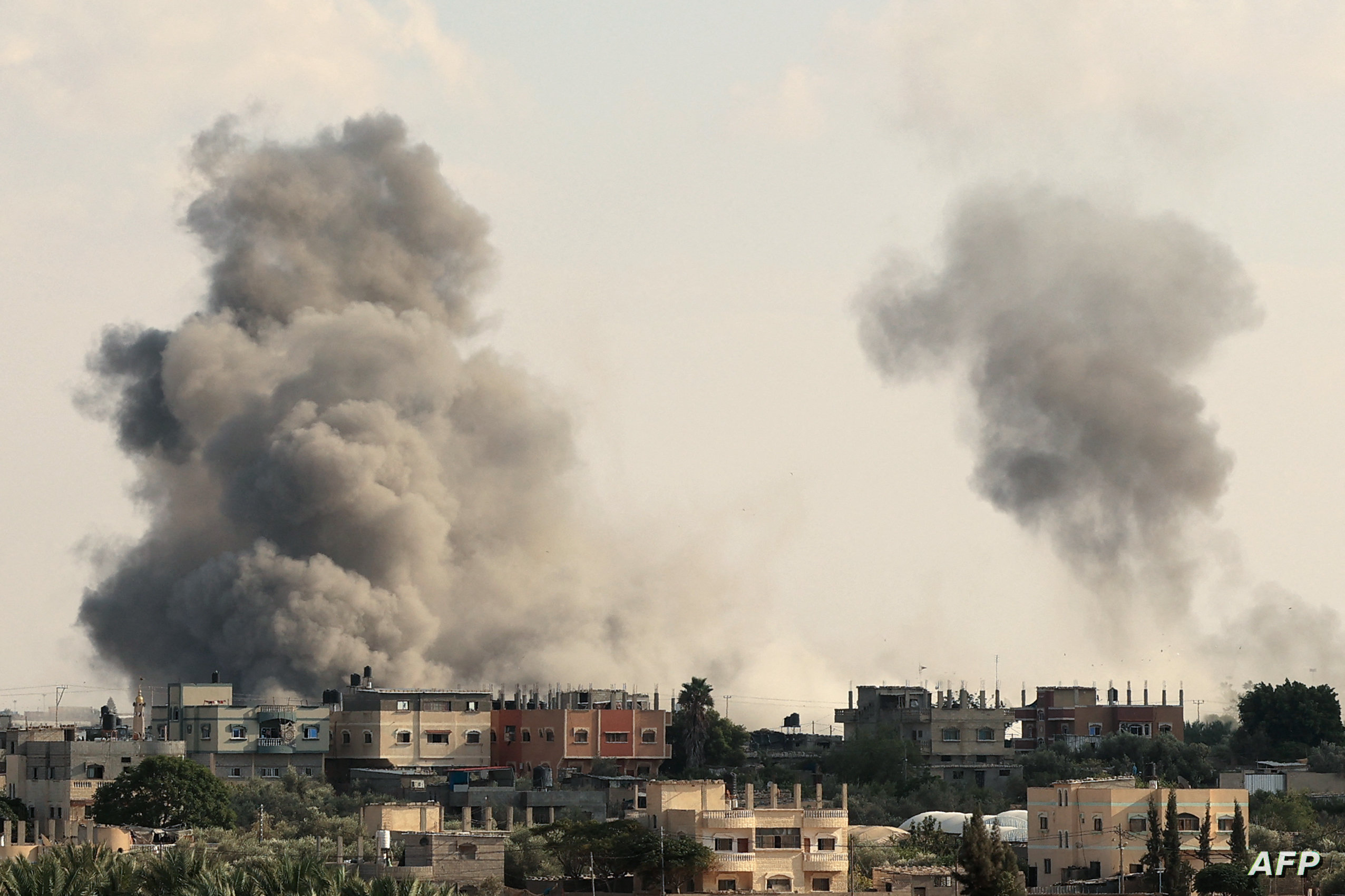Egypt is preparing for presidential elections purportedly to be held at the end of 2023. This comes at a time when Egyptian opposition forces have been anticipating the opening of public space. Despite the release of many political activists and human rights defenders, security forces have resumed arrests, targeting numbers comparable to those previously released.
“Zawia3” has learned from a source close to potential presidential candidate Ahmed Tantawi that security forces initiated a widespread campaign of arrests and summonses for members of the campaign across governorates on the evening of Thursday, September 14. We were unable to obtain information regarding the number of arrests or summonses. We had previously published a report on September 12 titled “Police Officer and 2 Lawyers Detained for Supporting Tantawi for President,” stating that the Supreme State Security Prosecution ordered the renewal of the detention of police officer “Amr Ali Attia” for 15 days due to his electronic support for potential presidential candidate Ahmed Tantawi in case No. 2023 for the year 2023, State Security Supreme.
The report mentioned that the detention of Officer Amr Ali Attia was not an isolated case, as two lawyers associated with Tantawi’s campaign were also investigated. The day after our report, Ahmed Tantawi stated that there were “security crimes against his campaign partners” and that security forces had “escalated their illegal and unethical actions towards his election campaign” in recent days. In a statement issued on Wednesday, September 13, 2023, he said, “Security forces have used various methods of transgressions, violations, and crimes to intimidate him, his colleagues, and their supporters.”
Tantawi’s statement mentioned that “security forces recently arrested, detained, and disappeared a large number of campaign volunteers, and have repeatedly leveled typical charges against six of them so far, leading to their pretrial detention by the Supreme State Security Prosecution.” The statement affirmed that the potential presidential campaign had reached a total of “over 16,000 volunteer members” whom the statement referred to as “believers in peaceful democratic change under the umbrella of the constitution and the law to save Egypt from its historical crisis.”
Egyptian security forces also initiated surprise arrest campaigns in several governorates in August, says a human rights lawyer, adding that the security campaign “intensified more in the streets of Giza and Cairo.” In the Nahya area of Giza, a source from the locals said that security forces began randomly arresting passersby in the streets. On the day Gamal Ziada, the father of journalist Ahmed Gamal Ziada was arrested on August 22, 2023, about 22 citizens were randomly detained at the same time. Since that day, security forces have been stopping and searching pedestrians, arresting some of them, and, as they say, “although some of them are Islamists, many of them have no connection to politics.”
Constitutional Violation
The “WSJ” recently reported that Egypt is planning to hold early presidential elections, with candidate registrations expected to begin in October and the voting process in early December. However, the responsible electoral authorities in Cairo have not yet announced a precise date for the elections or the full timeline of the electoral process. This is despite Article 241 of the Constitution, which states that elections should be held within 120 days before the end of the presidential term, which began on April 2, 2018. This is in accordance with the provisions of Law No. 22 of 2014 on the organisation of presidential elections and Law No. 198 of 2017 as amended by Law No. 140 of 2020 regarding the formation of the National Electoral Commission.
However, the lack of a clear announcement regarding the timeline of the 2024 Egyptian presidential elections is not the only problem at hand. Observers of the political scene in Cairo are well aware of the deliberate tightening of restrictions on citizens, political parties, media outlets, and journalism that have been monopolized in favor of high-level state apparatuses. Despite repeated enthusiastic announcements about opening up the public sphere, the numbers and facts show that there is further closure, surveillance, and persecution, even coercion, in place, with the current president, despite not officially announcing his candidacy yet, expected to remain the presumed winner of the presidency for the next six years.
The Ultimatum Delivered Directly
Emad (a pseudonym to protect the source’s identity) stated in an interview with “Zawia3” that he was surprised just two days ago by a security campaign sweeping through the residential streets of Imbaba in Giza. He attempted to enter his home out of fear that the campaign was part of the ongoing random arrest campaigns in recent weeks. However, he was asked about his personal identity. He added, “The campaign collected the personal identities of passersby on the street, as well as the owners of shops and cafes, and their patrons. They then informed us that they would retain this information or a copy of it until the presidential elections.” The campaign that targeted Emad and his neighbors was not isolated; it has been repeated in areas in the heart of Cairo as well, especially with café owners in the Daher and Waili areas.
It has become customary for government employees to receive almost daily directives to support Sisi’s candidacy for a third presidential term, along with nearly complete restrictions and no opportunity to discuss other potential candidates. Those who refuse to sign their support are threatened with administrative penalties that may lead to dismissal from work.
Other aspects of coercive endorsement campaigns can be seen in the coastal town of Dahab in South Sinai, where banners featuring Sisi’s images have been distributed by cafe and shop owners, as well as small hotels. Similarly, early endorsement banners have been posted in many places to serve as a form of exoneration and protection against persecution. Businessmen are also receiving direct orders to make financial and in-kind donations in preparation for the presidential campaign, as recently noted by writer Belal Fadel on his Facebook page.
Preparation and Readiness
It is supposed to be the case that President Sisi’s term will come to an end by March of the coming year, according to the constitutional provisions that allow the president to run for only two consecutive terms. However, significant progress has been made to circumvent the previously established constitutional term limits. President Sisi has now been granted the right to run for a third term of 6 years, based on recent constitutional amendments in 2019, especially Article 140, which extended the presidential term to six Gregorian years. According to these amendments, Sisi’s second term, which was supposed to end in 2022, has been extended to end in 2024. Subsequently, he has been allowed to run for a new term, claiming that any constitutional amendment resets the presidential term.
These constitutional amendments are not the only preparations made for the upcoming elections. Law No. 198 of 2017 has given President Sisi the authority to appoint supervisors for the elections, including those in which he is likely to run. The scene appears to have a judicial oversight, but it is far from impartial. This is especially true since recent amendments have undermined the principle of separation of powers and the independence of the judiciary. This happened after the passage of Law No. 13 in 2017 to regulate the judiciary’s work and the amendments to Articles 185 and 193 of the constitution, allowing the president to appoint heads of judicial bodies and control the formation of the Supreme Judicial Council, thus influencing the Electoral Commission.
According to a position paper issued by the Cairo Institute for Human Rights Studies in May of last year, “It is impossible for the upcoming elections to be characterized by freedom and integrity under the repressive legislative arsenal and institutional framework that consolidates all state resources and institutions in the hands of the president, and the authorities’ rejection of all forms of opposition and criticism,” highlighting the deteriorating situation. Civil society organizations have voiced similar concerns.
According to Human Rights Watch, these measures, similar to those taken before the 2018 elections, violate Egypt’s international and regional commitments, as well as its domestic constitutional provisions, including the International Covenant on Civil and Political Rights, the African Charter on Human and Peoples’ Rights, and the African Union Declaration of 2002 on the Principles Governing Democratic Elections in Africa.
Double Oppression
In addition to the extensive and indiscriminate pre-election arrests mentioned earlier, particularly targeting members of the potential presidential candidate Ahmed Tantawi’s campaign, security forces arrested Mohamed Zahran, the founder of the Independent Teachers Movement, following a speech he gave during one of the sessions of the ongoing national dialogue since May. He became the first participant in the national dialogue to be arrested, facing charges of joining a subversive group and disseminating information that disturbs public peace. Hisham Kassem, the head of the Free Liberal Stream, was also recently arrested following a disagreement with the labor leader and former Minister of Manpower, Kamal Abu Eita, who accused Qassem of slander and defamation. This incident provided an opportunity for the security authorities to target Abu Eita and legitimize their recent policies, which are based on striking the opposition’s ranks internally. This has already been raised, with some parties accusing Abu Eita of using his complaint as a pretext to undermine liberals and intellectual diversity. However, his Nasserist stream strongly defended him, asserting that disputes should be resolved within the judiciary’s realm, as long as they do not reach the extent of defamation and slander.
Tantawi was the first to declare his intention to run for the presidency as a potential candidate. A former journalist and parliamentarian, he was the former president of the Dignity Stream Party (left-wing nationalist) before resigning. Additionally, Abdel-Sind Yumama, the president of the Wafd Party, and Hazem Omar, the president of the Republican People’s Party, announced their intentions to run for the presidential elections. The Independence Stream also declared the nomination of its president, Ahmed El-Fadaly, to run in the upcoming presidential elections; he is also the president of the Democratic Peace Party. Clearly, Tantawi is the only potential candidate opposing Sisi, while the others were supporters of him and his policies.

